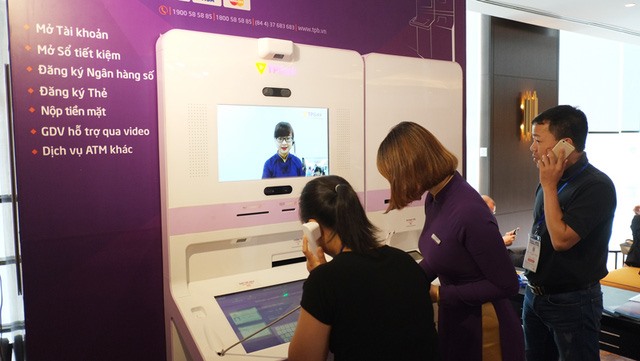Viet Nam has seen a digital wave in the finance-banking industry, with many banks investing significantly into the segment, experts said at a conference on Thursday.

Viet Nam has seen a digital wave in the finance-banking industry, with many banks investing significantly into the segment, experts said at a conference on Thursday.
During the conference on digitalising the banking industry held in Ha Noi, director of the State Bank of Viet Nam (SBV)’s Payment Department Pham Tien Dung cited data from an SBV survey that by the end of April this year, 94 per cent of local banks have invested in digitalisation, of which 42 per cent consider digital banking to be the top priority in their business strategy.
Internet banking services in Viet Nam have accelerated by 6.3 times over the past three years. Experts attributed the high growth to the popularity of the internet and smartphones in the country. By the end of 2017, Viet Nam had 45 million 3G/4G users and a majority of smartphone users.
Payment through mobile banking services has also surged by a whopping 144 per cent per year over the past five years. Meanwhile, the same period has seen payments by traditional methods increase by only 40 per cent.
Seizing the trend, many banks have been embarking on the application of 4.0 technology and modernising their business models. Examples include the automated bank model LiveBank, digital bank model Timo or providing online consulting services through Live Chat.
According to experts at the conference, banks prefer the application of digital technology thanks to its lower costs and wider coverage than that of traditional models.
The development of internet banking, mobile banking, payment solutions using QR codes, near-field communication technology (NFC), or advances in biometric technology using fingerprints and iris scanning has helped the banking industry bring new and convenient products and services to customers, which has helped banks reach sustainable growth in the long run thanks to an increase in revenue and profit from services and gradually reduce dependence on lending, they said.
In addition, experience from many countries has also shown that, with the support of digital technology, even developing or poor countries can achieve breakthroughs in financial inclusion.
Nguyen Kim Anh, SBV’s deputy governor, said there was significant potential to apply and exploit digital technology in order to increase the efficiency and quality of services in the country’s banking industry, provided by the country’s good technical infrastructure and streamlined policies.
"The SBV pays special attention to fine-tuning the legal framework, building and promulgating legal regulations and orientations in order to enhance the development of information technology infrastructure and security for the banking industry," Anh said, adding that SBV has so far actively undertaken many activities so that the banking sector can adapt to the fourth industrial revolution.
Regarding technical infrastructure, Anh said, SBV has set up the national inter-bank electronic payment system (IBPS) and the national credit information centre, which have been operating smoothly.
As for the legal framework, SBV have also developed IT infrastructure, enhanced safety and security to support banks in digital applications and promote online banking activities.
To promote digital banking, Anh urged banks to further improve corporate governance, security and human resources. — VNS





